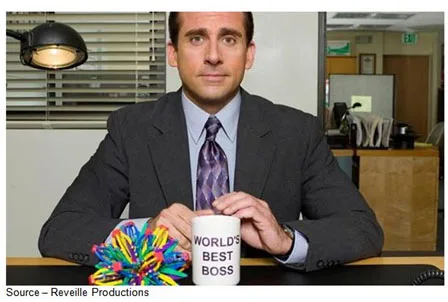It’s Time – Recognize the Signs when it’s Time for a Job Change

Business is only beginning to take advantage of the Knowledge Economy.
The new economy is built on people with strong creative, intellectual properties who can deliver a high value return for the organization. And firms are going to extraordinary lengths to hire the best of these human capital assets.
They offer incentives like flexible work hours, remote working, extended maternal/paternal leave, free food/fun/services and relaxed work environments.
As enticing as these benefits are on the surface, they aren’t as important to folks as providing the right opportunity for growth/experience, the right managerial team and open/honest communications.
These are hard things to articulate and measure – company/people/products you like and feeling you can make a contribution – but they can change. They are tangible and are the leading causes of the loss of valuable people and their knowledge.
The Knowledge Economy isn’t new; Peter Drucker introduced the concept back in 1966 in his book The Effective Executive.
Perhaps Kenny Rogers best expressed what it means for today’s knowledge worker:
You’ve got to know when to hold ’em, Know when to fold ’em, Know when to walk away, And know when to run.”
People who constantly stretch themselves rather than doing the job the same way every day sometimes find the environment changes because of people and things.
When the situation changes and your value is diminished or dismissed, it might be time to contribute and grow somewhere else.

If you’re not sure if it’s the right time to leave, you’re not alone.
When folks approach each day, each project and each activity with knowledge, a creative spark, a strong belief in themselves; they do a better job because they are usually doing work they love.
A recent Harris Interactive study found that 31 percent of employees aren’t satisfied with their current position.
Satisfied or not, 74 percent said they would consider leaving for a new firm/position–especially if they were offered more growth potential (challenges).
The survey reported 31 percent wanted to change, 29 percent would move for career/advancement opportunities, 22 percent to change professions and 18 percent were concerned about the firm’s future.
In today’s competitive employment environment, there is frankly no reason to spend time in a lousy job–especially if it’s a job made lousy by managers or fellow employees.
You’re better than that.
You deserve more than that!
Often, jobs become lousy because a manager is brought in who is hell-bent on establishing his mark in the company or is intent on establishing his/her power position in the firm.
If the individual is confident in his/her own strengths and expertise, supporting the individual with the best work you can do can build the relationship and the team/entire company benefits.
A fearful boss will take you out of circulation rather than let you shine.
When you’re given clear feedback, assigned projects that stretch and test you to achieve, then you know you’re valued, appreciated.

If not, telltale signs will appear:
- He/she becomes your foe. It’s apparent the individual isn’t on your side.
- Shallow or fearful managers don’t want anyone on their team more credible, more competent than they are.
- They modify and perhaps even shrink your job description, authority, responsibility to minimize the value of your efforts and contributions.
- Work latitude gives way to micro-managing because they’re afraid to let you run free.
- Projects you developed or were carrying out suddenly get assigned to someone else to undermine you, chipping away at your confidence, value.
- Projects are given to you late in the game when failure is almost assured–even with herculean efforts.
- The manager bristles, gets irritated for no real reason, makes unreasonable demands, and ignores requests for information/materials or discussion.
- The relationship becomes less cordial, more professional and the workload is increased while timelines are reduced.
- The vibrance, excitement, free exchange of the team or company is replaced by hierarchical, dictatorial decisions and responses are given when the time is deemed right by the manager.
- If you don’t have enough to do or your budget is cut, you’re being indirectly told that your efforts/you are not a priority.
It’s important to recognize that it is virtually impossible to have a conflict-free office environment and that not all conflict needs to be destructive. In a highly collaborative environment, conflict and disagreement can inspire positive and innovative solutions.
The key is not to focus on the personalities but on the root cause.
An outward sign that the situation has deteriorated and is no longer right for you is encountered in many of today’s start-ups. Rapid growth, revolving personnel and evolving core corporate values can be symptoms that your job is making you physically ill.
It’s often referred to as stress creep and you don’t take time for your workout, constantly eat on the go or at your desk and are simply not taking care of yourself.
Another sure sign is being completely drained by the end of the day or week and spending the weekend dreading to go to work on Monday.
Change is inevitable but people aren’t built to be miserable.
When changes occur without including you, it’s time to leave.
Meg Whitman, president and CEO of HP Enterprise, recently pointed out that the best people make fast decisions based on the data at hand and when mistakes are made; they fix them just as quickly.
She observed that good people can recognize the pattern as it unfolds, often before it becomes serious. Others are indecisive or think about what bad things can happen and freeze.
She added, “I’ve seen the movie before.”
Usually, there are subtle signs and bright red flags that indicate the environment has changed and things aren’t working for you.
There was a time when a good job was one that paid you decently and kept you employed. Today, a job has to deliver more to be worth your time.
If you don’t see a change, it’s time to fold ‘em and walk away.

Be gracious when that time comes and remember … you were looking for a job when you found this one!
# # #